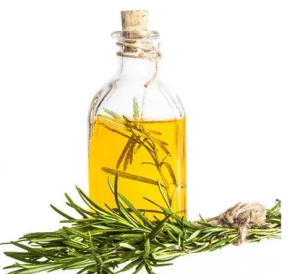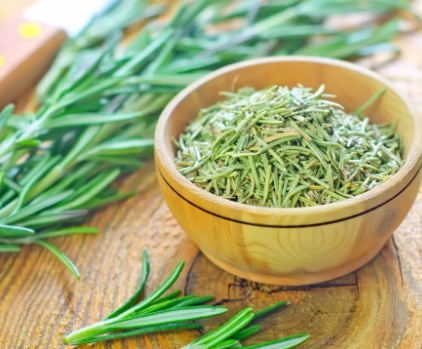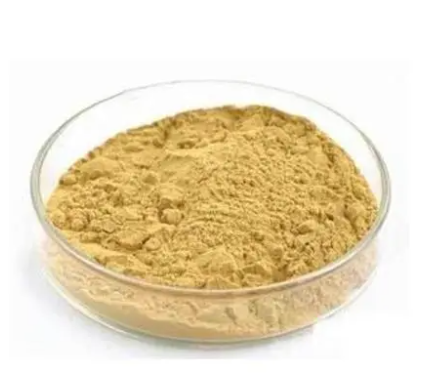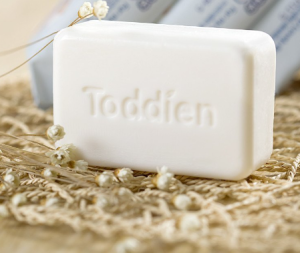Rosmarinus officinalis L. (rosemary) is in high demand in the food and drink industries due to its distinct organoleptic properties. With the aim of evaluating the rosemary leaves as drink ingredients, both the essential oil and alcoholic (38%, v/v) extract were studied in terms of chemical composition, genotoxicity, antimicrobial, antiviral, and antioxidant properties. GC-MS analysis showed that the main volatile compounds in the essential oil were eucalyptol (40.1%), camphor (12.4%), and α-pinene (12.9%). LC-MS analysis revealed gallocatechin and rosmarinic acid as the main extract ingredients. Both the essential oil and the extract were not genotoxic (Ames test) against TA98 and TA100 at the dilutions of 5% and 90%, respectively; those dilutions were selected as the maximum possible ones in the drink industry. Their activity was investigated against Escherichia coli, Salmonella enterica serovar Typhimurium, Staphylococcus aureus, Aspergillus niger, and Adenovirus 35. Both were effective against Adenovirus and A. niger, even the essential oil at 5% (v/v). The extract at dilutions of 25-90% had more pronounced activity against tested bacteria than the essential oil at the dilutions of 5-100%; the essential oil at the dilution of 5% inhibited S. aureus growth.






